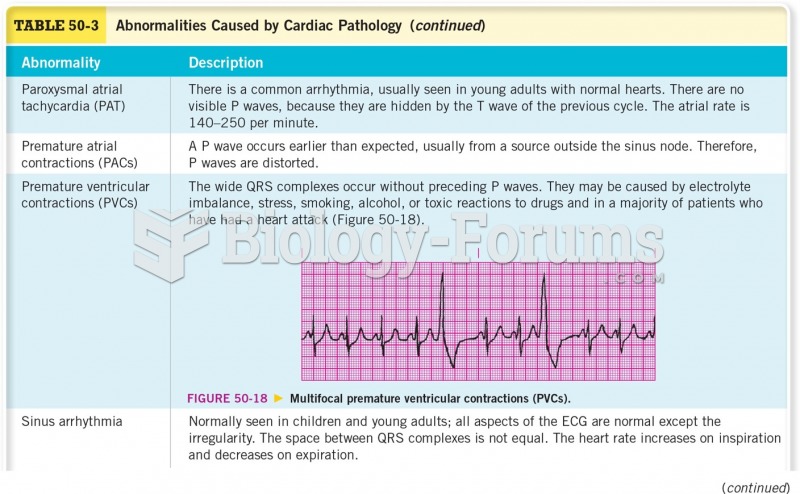|
|
|
By definition, when a medication is administered intravenously, its bioavailability is 100%.
When blood is deoxygenated and flowing back to the heart through the veins, it is dark reddish-blue in color. Blood in the arteries that is oxygenated and flowing out to the body is bright red. Whereas arterial blood comes out in spurts, venous blood flows.
The tallest man ever known was Robert Wadlow, an American, who reached the height of 8 feet 11 inches. He died at age 26 years from an infection caused by the immense weight of his body (491 pounds) and the stress on his leg bones and muscles.
The familiar sounds of your heart are made by the heart's valves as they open and close.
Pubic lice (crabs) are usually spread through sexual contact. You cannot catch them by using a public toilet.







